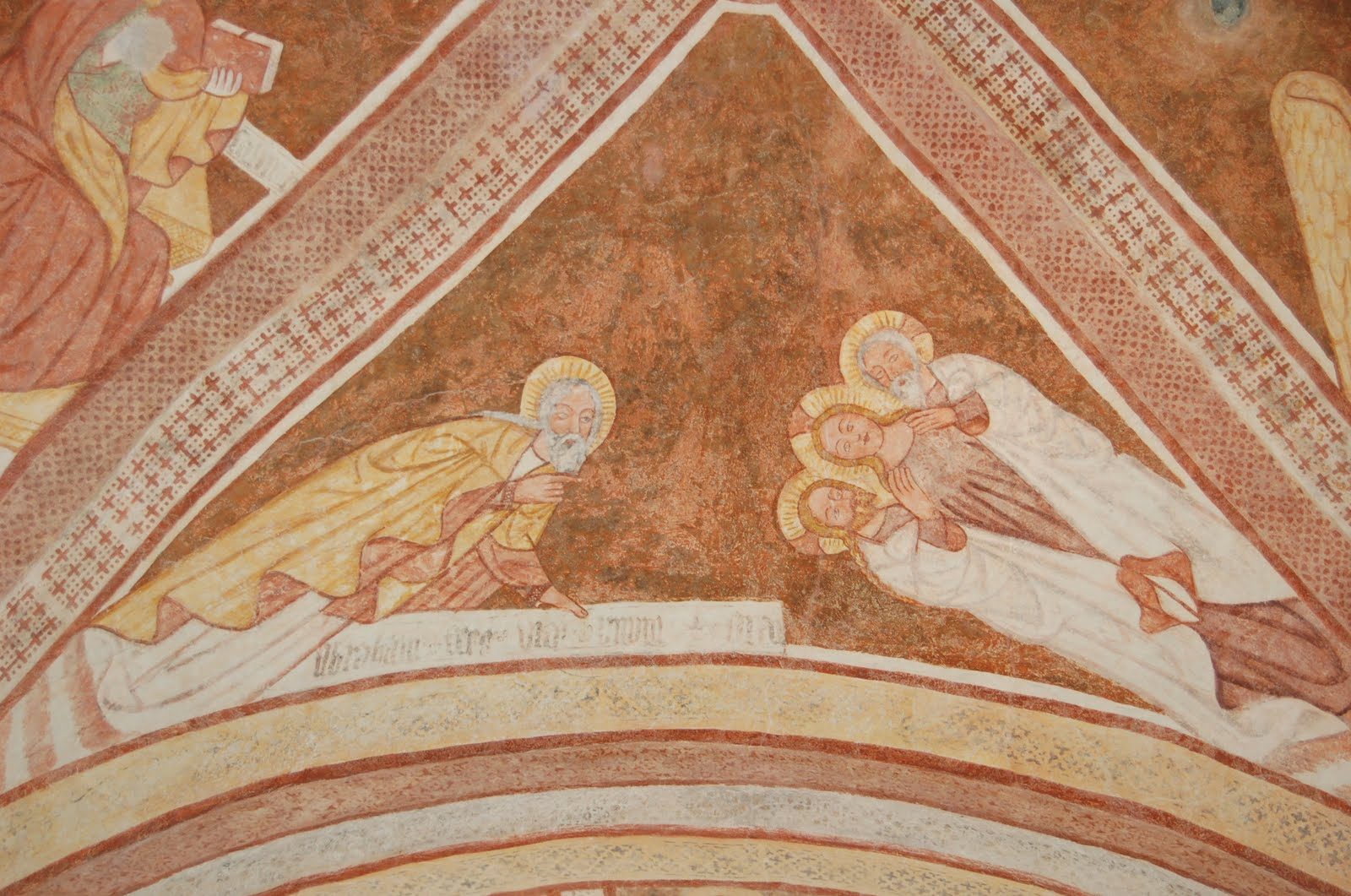God is spirit, Jesus told Photina, the woman at the well, in John 4:24. I’ve been reading snippets of Near Death Experiences, and consistently, people agree that God is spirit, electric with light and love. Not human, not male, not female. So why do we need to call God Mother? Why not just do away with Father and all the other masculine language for God, including masculine pronouns, and call God, “God”?
“I Hear The Word ‘God’…as Male”
Lauren Winner, author of the excellent Wearing God: Clothing, Laughter, Fire, and Other Overlooked Ways of Meeting God, addresses the masculine-God-language problem by mostly avoiding gendered pronouns and nouns. She writes: “About four years ago, I made a conscious decision to try to set aside third-person singular pronouns for God, except when they appeared in prayers and hymns written by someone else or scripture translated by someone else.” That “except” would mean she would not be setting masculine pronouns aside very often.
However, she says this small act of curbing her own speech heightened her awareness of how her “community’s prayers, hymns, and sermons are saturated with masculine language.” She also noticed that “I tend to hear the word ‘God’ not as somehow beyond gender or as betokening the diversity of divine life; rather, I hear it as male.”
Winner almost thinks out loud in her book, as she suggests that the “antidote to this formation is…to sometimes use feminine pronouns and sometimes masculine pronouns.” It’s uncomfortable for her, she admits, but she tries it out now and again in her book, because she believes “the uncomforting is holy and blessed.” Good for her! Enduring the discomfort is the first step in changing the male God image to become female, too.
Like Winner’s gradual and subtle conclusion to her “Short Note on Gender and Language for God,” I, too, think there are good reasons for why we humans can’t keep God unbound by gender, despite the fact that She is Spirit.
The Personhood of the Trinity
First, God is a person. For example, my Sunday School theology tells me not to call the Spirit an It, but rather a He, though it’s tempting because the Spirit seems neuter. And the basic reason we use a personal pronoun is that God is a person not a thing. And persons have a sexual distinction.
It’s true that language around gender is changing, thanks to the insights given by the LGBTQ+ community. However, we don’t really have a way to relate to a person who is a Spirit without also referring to that person with a gendered pronoun. (We could call Her “They” but that would evoke all kinds of theological broohaha). And even if we manage to say God and Godself several times in a row instead of saying He or Him, the echo of the masculine pronouns we have always used speaks of an ancient man behind the scenes, like the Wizard of Oz behind the big voice and curtain.
We Reflect God
Secondly, sexed people reflect God. (And I am differentiating here between having a sex, which is the mechanics of being a woman or man that lead to differences, and having gender, which is all the societal stuff we take on making all girls like pink and fluffy stuff and all boys prefer blue and mud.)
The author of Genesis (1:27) tells us that men and women alike are made in God’s image. God didn’t have to create a man and a woman. She could have found another way. The two sexes (in contrast to just one sex) inform us of Her very being.
Bringing Down a False God
Third, we’ve already made God thoroughly male (and white, but that’s another post). It’s simply too late to neutralize the word, God. Thousands of years, and most religions, give God a basic masculine identity. It’s time to chip away at that false image, that false god. We have simply got it wrong about God. Jesus’ appearance on the scene was, in part, supposed to enlighten us to the feminine within God, but we didn’t get it.
It’s only taking the uncomfortable, unpopular yet Biblically-rooted stand that God can be She, God can be Mother, or any number of feminine metaphors, that will begin to pull down our false male god and put up the True One before us, the one who is represented well by both female and male.

